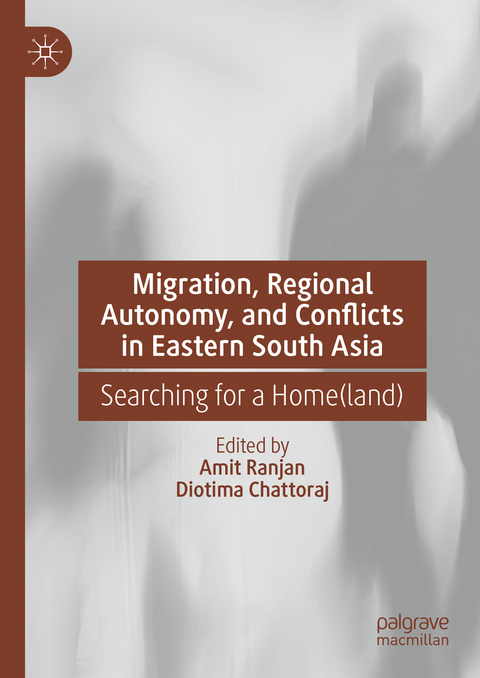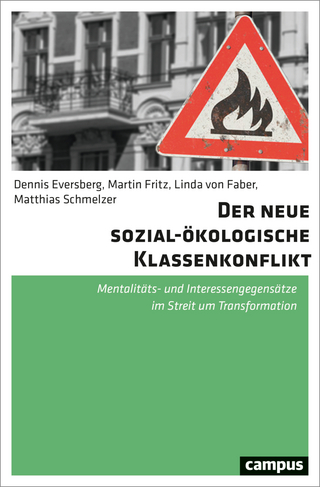
Migration, Regional Autonomy, and Conflicts in Eastern South Asia
Springer International Publishing (Verlag)
978-3-031-28763-3 (ISBN)
lt;p>Amit Ranjan is Research Fellow at the Institute of South Asian Studies, National University of Singapore. His latest books include: (with Ian Talbot) Urban Development and Environmental History in Modern South Asia (Routledge, London, 2023) and Contested Waters: India's Transboundary River Water Disputes in South Asia (Routledge, London and New Delhi, 2020). He is also the author of India-Bangladesh Border Disputes: History and Post-LBA Dynamics (Springer, Singapore, 2018). Amit has edited the following books: India in South Asia Challenges and Management (Springer, Singapore, 2019), Partition of India: Postcolonial Legacies (Routledge, London and New Delhi, 2019) and Water Issues in Himalayan South Asia: Internal Challenges, Disputes and Transboundary Tensions (Singapore, 2019). His papers, review essays and book reviews have been widely published in journals, including Asian Survey, Asian Affairs, Asian Ethnicity, Asian Journal of Comparative Politics, Economic & Political Weekly, India Review, Indian Journal of Public Administration, India Quarterly and the Journal of Migration Affairs, amongst others.
Diotima Chattoraj is Adjunct Research Fellow at the department of Social and Health Sciences in James Cook University, Singapore. She is also working part-time as a Senior Researcher for Transient Workers Provident Fund (company). Her research interests include migration, development, ethnicity, international relations, and boundary-making, supported by strong publication record including a book, several articles, book chapters and book reviews in refereed, Scopus-indexed journals. She is an assistant editor for South Asia Research (Sage) and serves as a peer reviewer for a number of refereed journals.
Introduction by Amit Ranjan and Diotima Chattoraj.- Section One: Crossing Internal and International Borders.- Chapter 1: Migration, Displacement and Agency in North-East India: A New Outlook by Randhir Gogoi.- Chapter 2: Migration from North-East India since the 1990s: Ethnopolitical Issues and Economic Development Perspectives by Avijit Mistri.- Chapter 3: Bangladeshi Immigration into West Bengal: A Qualitative Study by Sumana Das and Md. Anisujjaman.- Section Two: Movements for Homeland.- Chapter 4: Rohingya Migrants in Bangladesh and India by Amit Ranjan.- Chapter 5: The Nexus Between Indo-Nepal Migration and Trafficking in Persons by Sadikshya Bhattarai, Sudeshna Thapa, and Jeevan Baniya.- Chapter 6: "Ura Uvie"- my home-it belongs to me: Meaning making and transitions in the quest for the Naga homeland by Dr. Kaustubh Deka.- Chapter 7: Armed Conflict in Manipur bySeram RojeshChapter 8: Decoding Bodo Peace Accord 2020: Political Expediency vs. Enduring Ethnic Solution by V. Bijukumar.- Chapter 9: Nepali Speakers of West Bengal, Politics of Self-Rule, and Political Elites by Abi Narayan Chamlagai.- Chapter 10: Migration, Ethnic Conflicts and Negotiations in the Darjeeling Himalayas by Sudip Khasnobish, Chanchal Adhikary and Chanchal Mandal.- Section 3: Defining Self and Others in Eastern South Asia.- Chapter 11: Koch Rajbanshis and the Kamatapur Movement: Competition over Local Resources by Samujjal Ray.- Chapter 12: Madhesi Movement in Nepal by Lalita Kaundinya Bashyal and Keshav Bashyal.- Chapter 13: The Chittagong Hill Tracts Peace Accord: Hope and Reality by Fardaus Ara and Md Mostafizur Rahman Khan.- Conclusion by Amit Ranjan and Diotima Chattoraj.
"The editors express the hope that their multi-perspective examination will inform future research and appreciate the various writers' collaboration in producing this illuminating edition. This is indeed a useful book, and, through such research, it is possible that innovative strategies may arise to address the persisting issues and resulting unrest in Eastern South Asia." (B. Mohan Nikhil Teja, South Asia Research, Vol.44 (2), 2024)
| Erscheinungsdatum | 28.05.2023 |
|---|---|
| Zusatzinfo | XXIII, 337 p. |
| Verlagsort | Cham |
| Sprache | englisch |
| Maße | 148 x 210 mm |
| Gewicht | 601 g |
| Themenwelt | Sozialwissenschaften ► Soziologie ► Spezielle Soziologien |
| Schlagworte | Cross-border • demographic • History • Home • Homeland • India • Kashmir • Movement • Political • Region • sub-nationalism |
| ISBN-10 | 3-031-28763-0 / 3031287630 |
| ISBN-13 | 978-3-031-28763-3 / 9783031287633 |
| Zustand | Neuware |
| Informationen gemäß Produktsicherheitsverordnung (GPSR) | |
| Haben Sie eine Frage zum Produkt? |
aus dem Bereich


